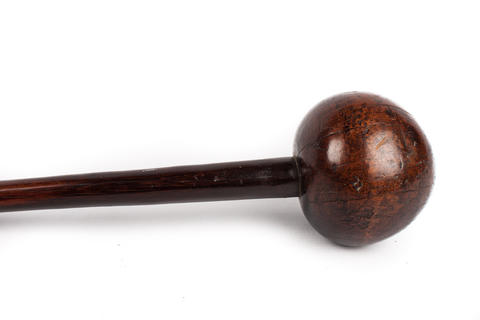Zone du titre et de la mention de responsabilité
Titre propre
Club (view 2)
Dénomination générale des documents
- Objet
Titre parallèle
Compléments du titre
Mentions de responsabilité du titre
Notes du titre
- Source du titre propre: FHYA using JAG materials
Niveau de description
View
Cote
Zone de l'édition
Mention d'édition
Mentions de responsabilité relatives à l'édition
Zone des précisions relatives à la catégorie de documents
Mention d'échelle (cartographique)
Mention de projection (cartographique)
Mention des coordonnées (cartographiques)
Mention d'échelle (architecturale)
Juridiction responsable et dénomination (philatélique)
Zone des dates de production
Date(s)
-
2017 - (Online curation)
-
1987 (Ownership)
-
YYYY (Making)
Zone de description matérielle
Description matérielle
Zone de la collection
Titre propre de la collection
Titres parallèles de la collection
Compléments du titre de la collection
Mention de responsabilité relative à la collection
Numérotation à l'intérieur de la collection
Note sur la collection
Zone de la description archivistique
Historique de la conservation
Portée et contenu
[Source - Nessa Leibhammer for FHYA, 2015, using Brenthurst materials and JAG records: Club]
Zone des notes
État de conservation
Source immédiate d'acquisition
Classement
Langue des documents
Écriture des documents
Localisation des originaux
Disponibilité d'autres formats
Restrictions d'accès
Délais d'utilisation, de reproduction et de publication
Creative Commons License: CC BY-NC-ND
https://creativecommons.org/licenses/by-nc-nd/3.0/
Unless otherwise stated the copyright of all material on the FHYA resides with the contributing institution/custodian.
Instruments de recherche
Éléments associés
Accroissements
Note générale
Additional information
[Source - Sarah Schaefer for FHYA, 2020, transcription of the Brenthurst catalogue, 'Art and Ambiguity: Perspectives on the Brenthurst Collection of Southern African Art', produced by the Johannesburg Art Gallery, 1991: Club; wood; 66,9 x 8,8 x 8,8; Southern Africa; JL-R-18]
Note générale
Physical characteristics
[Source - Brenthurst Catalogue Art and Ambiguity: Perspectives on the Brenthurst Collection of Southern African Art produced by the Johannesburg Art Gallery, 1991. Subsequent to this the collection has been entered onto the CoJ Star database using the Brenthurst Catalogue as the reference: Dimensions: 66,9 x 8,8 x 8,8 cm Material: wood]
Attributions and conjectures
[Source - Nessa Leibhammer for FHYA, 2017: Jonathan Lowen is an ex South African living in London. He sourced items from a wide range of places including antique dealers, markets such as Portabello Road, auction sales, etc. The collection was purchased by wealthy Johannesburg businessman and philanthropist, Harry Oppenheimer, and placed on on-term loan with the Johannesburg Art Gallery (JAG) in 1987. (Info from Karel Nel to Nessa Leibhammer, 12 October 2014) See: also Sandra Klopper, ‘South Africa’s Culture of Collecting: The Unofficial History’, African Arts, Winter 2004, 18-24.]
Attributions and conjectures
[Source - Nessa Leibhammer for FHYA, 2017: Comments on classification: In his ‘A Preliminary Survey of the Bantu Tribes of South Africa’, Union of South Africa, Department of Native Affairs, Ethnological Publications, Vol. 5, Pretoria, Government Printer, (1935): 7, 70-83, national government ethnologist, Nicholas Van Warmelo did not use the term “North Nguni”. He grouped people living both north and south of the Thukela, under one umbrella term, “Natal Nguni”, based on linguistic affinity. His classification was adapted by the ethnology curator, Margaret Shaw, in her 1958 “System of Cataloguing Ethnographic Material in Museums” which determined that items from the region were to be classified as “Natal Nguni: Zulu and others (not differentiated).” According to art historian, Anitra Nettleton, the classificatory system used by art galleries and museum shifted from Shaw’s model to the one where “Natal Nguni” fell away and was replaced by “North/Northern Nguni” for KwaZulu-Natal and Swaziland because scholars found it difficult to distinguish items from adjacent areas, or emmigrant people from those from the KZN region. Scholars working with the JAG materials used broad ethno-linguistic categories (Zulu, Xhosa, Tsonga, Shona, Sotho, Tswana) to identify the makers/users of the objects, all of which came to JAG without much by way of provenance, and identification was based on factors such as object type, materials, formal composition, style and surface patterning (emails A. Nettleton to N. Leibhammer, 25 and 28 November 2014).
Jonathan Lowen employed Margaret Carey, a British ethnologist, to catalogue his collection collection in the winter of 1983-84. She classified many of the objects as 'Zulu' (sic) simply because of a lack of information about the objects. (Rhoda Rosen citing Sandra Klopper.)
For an extended version of this note on JAG classification see: 'JAG Classification Note' in Additional Resources]
Identifiant(s) alternatif(s)
Zone du numéro normalisé
Numéro normalisé
Mots-clés
Mots-clés - Sujets
Mots-clés - Lieux
Mots-clés - Noms
- Five Hundred Year Archive (FHYA) ()
- Johannesburg Art Gallery (JAG) (Conservation)
- Oppenheimer Family ()
- Jonathan Lowen (Collection)
- No attribution ()



Material contributed by members of the public
Building an archive is a collective endeavour. Please help us grow the FHYA knowledge base.
If you want to add information to this page you can insert a hyperlink, add files and/or text to the box below.
In the case of material relevant to the FHYA as a whole please upload information HERE.
The FHYA does not vet this material but reserves the right to remove anything deemed to be racist, homophobic, sexist or otherwise offensive. Everything on the FHYA is licensed under a Creative Commons CC BY-NC-ND licence.
To make a contribution you must be a registered user. To register an account, click here. Note that after registration you will not be automatically redirected to this page.
If you have already registered but are not logged in, log in here.